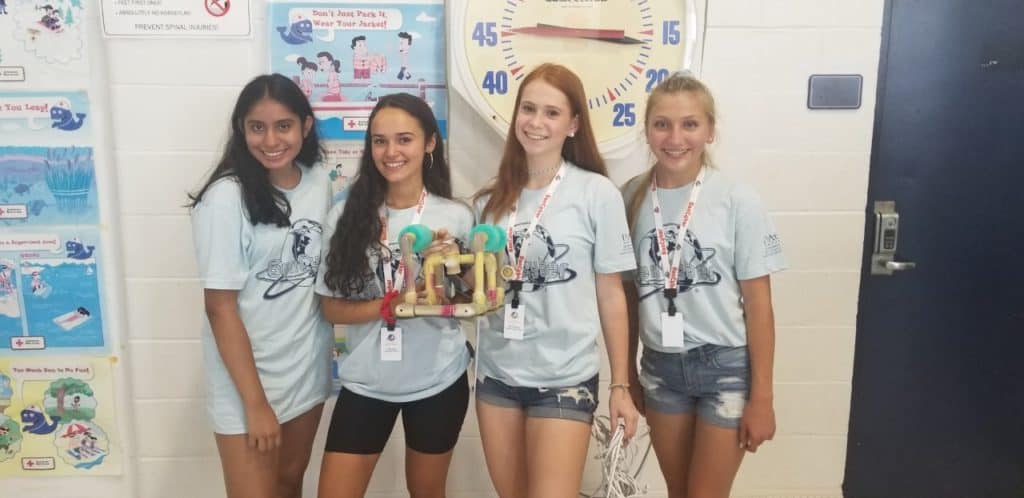
Utilizing underwater robots, aerial drones and cutting-edge coding techniques, 50 high school students from throughout the region have gained hands-on cybersecurity experience as part of Pace University’s Camp CryptoBot.
Inspired by a mission to motivate younger students to pursue cybersecurity – especially women and those from underserved areas – the camp is supported by the National Security Agency and the National Science Foundation as part of the national GenCyber program. In July, Pace University also hosted a two-week cybersecurity workshop for teachers to help facilitate the integration of cybersecurity concepts into lessons and after-school activities.
“Pace University’s commitment to cybersecurity education benefits the whole nation,” said NSA National Cryptologic School Commandant Diane Janosek. “Everything we do today has a cybersecurity component to it. GenCyber gives students the opportunity to learn about the role cybersecurity plays in their daily lives and encourages them to consider working in this field.”
“By 2020, it’s estimated that up to 2 million unfilled cybersecurity positions will exist in the United States,” added Professor Pauline Mosley, who spearheaded the camp on behalf of Pace’s Seidenberg School of Computer Science and Information Systems. “From national security to personal privacy, this shortage poses a critical threat to our society – but also an opportunity for students. Pace University is committed to closing that gap by inspiring younger students to pursue cybersecurity and by equipping teachers with the resources they need to incorporate these lessons.”
In addition to hands-on labs, Camp CryptoBot also taught students to understand safe online behavior and how ethics applies to cybersecurity. The five-day camp was free for all accepted students, including breakfast and lunch.
Fourteen-year-old Nickole Leite, who attends Yonkers Middle/High School, said that although things like cipher codes are complicated at first, once you get to know them, each becomes simplified and very secretive – something she’s been drawn to since she was a young child.
“When I was little I used to read a lot of mystery books, so learning about different kinds of codes before decrypting and encrypting them is like something out of a movie,” said Leite. “To know it’s real life and I know how to do this is amazing.”
GenCyber offers summer cybersecurity camps free-of-cost to students and teachers in kindergarten through grade 12. Since 2014, more than 12,000 students and 3,000 teachers have attended GenCyber camps. In 2019, 122 GenCyber camps will be held at 76 institutions across 38 states, D.C. and Puerto Rico, reaching more than 3,000 students and 800 teachers.





